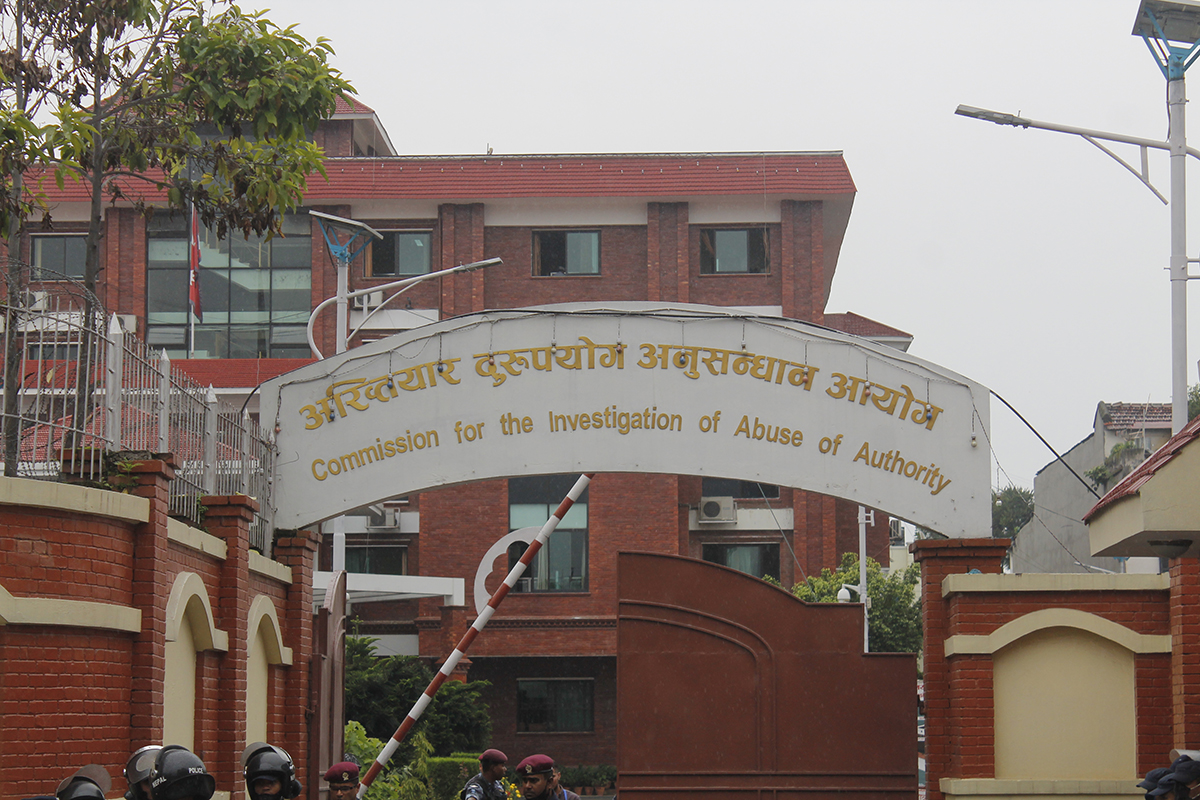Ban on gutkha sales limited to announcement, no significant impact
The municipality has formally declared the area as a “Gutkha Prohibited Zone” during a public ceremony.

KATHMANDU: Starting from 1st Chait, 2079 (BS), Tilottama Municipality in Rupandehi has imposed a ban on the sale and distribution of gutkha and similar substances.
The municipality has formally declared the area as a “Gutkha Prohibited Zone” during a public ceremony.
To regulate the sale and distribution of gutkha, the municipality introduced the “Procedure for Controlling the Sale and Distribution of Gutkha,” 2079. The procedure highlights that the use of these substances has a significant negative impact on human health and urban aesthetics.
According to Section 6, Subsection 1 of the procedure, an inspection committee will monitor the sale and distribution of gutkha.
The committee will be headed by the Deputy Mayor, with the Chairpersons of the Economic Development Committee, the Forest, Environment, and Disaster Management Committee, and the Revenue Branch, as well as representatives from the local Nepal Police, the Chamber of Commerce, the Industry and Trade Association, and the local police chief.
Similarly, Section 7, Subsection 1 outlines the formation of a ward-level monitoring committee, led by the Ward Chairperson.
The committee will include members from the local community, health institutions, the Nepal Police, and other local organizations.
The procedure also specifies fines for violations. For the first offense, wholesalers will face a fine of Rs 10,000, while other vendors will be fined Rs 1,500.
For the second offense, wholesalers will be fined Rs 20,000, and others will face a fine of Rs 2,000. A third violation will result in a fine of Rs 50,000 for wholesalers and Rs 5,000 for other vendors.
Despite the ban, locals report that the sale and distribution of gutkha continue openly in the municipality. Many have raised concerns that the fines outlined in the procedure are not sufficient to deter these activities.
Furthermore, it has been observed that gutkha is often hidden in grocery stores, making it difficult to prevent its sale.
Tulasi Nyaupane, the President of the Shivchok Community Development Organization in Ward 1, highlighted that, despite the ban, people continue to use gutkha and dispose of it irresponsibly.
He emphasized that the use of gutkha, as well as the spitting and throwing of it in public, is a growing problem that negatively impacts the cleanliness and image of the municipality.
While there was a public announcement, Ward Chairman Farsuram Giri expressed disappointment that inspections have been insufficient.
He mentioned that only a minimal number of inspections had been carried out, despite initial promises of thorough monitoring. He further stated that during recent inspections in Ward 1, they found minimal instances of gutkha being sold.
Ward 17 Chairperson Dan Bahadur Chaudhary noted that the monitoring was slow due to the busy schedules of individuals involved in the process, particularly students who are part of the monitoring team. He admitted that in many cases, vendors were only warned without any substantial penalties being imposed.
Since 2nd Baishakh, 2080 (BS), the municipality’s police department has successfully confiscated gutkha from over 13 shops and collected fines from 41 stores.
Police Chief Nar Prasad Shrestha reported that the total fine collected so far amounts to Rs 86,500, along with the confiscation of 201 packets and 1,356 pieces of gutkha.
With the addition of more municipal police officers, the authorities are confident that they will be able to strengthen monitoring and enforce the ban more effectively in the future.
Although the municipality has taken steps to regulate the sale of gutkha, Mayor Ram Krishna Khan admitted that the situation has not improved significantly.
He stated that further efforts, including involving community members and students in the monitoring process, will be made to ensure a more effective implementation of the ban.
With the addition of 15 more municipal police officers, the municipality now has a total of 21 officers dedicated to enforcing the ban.










